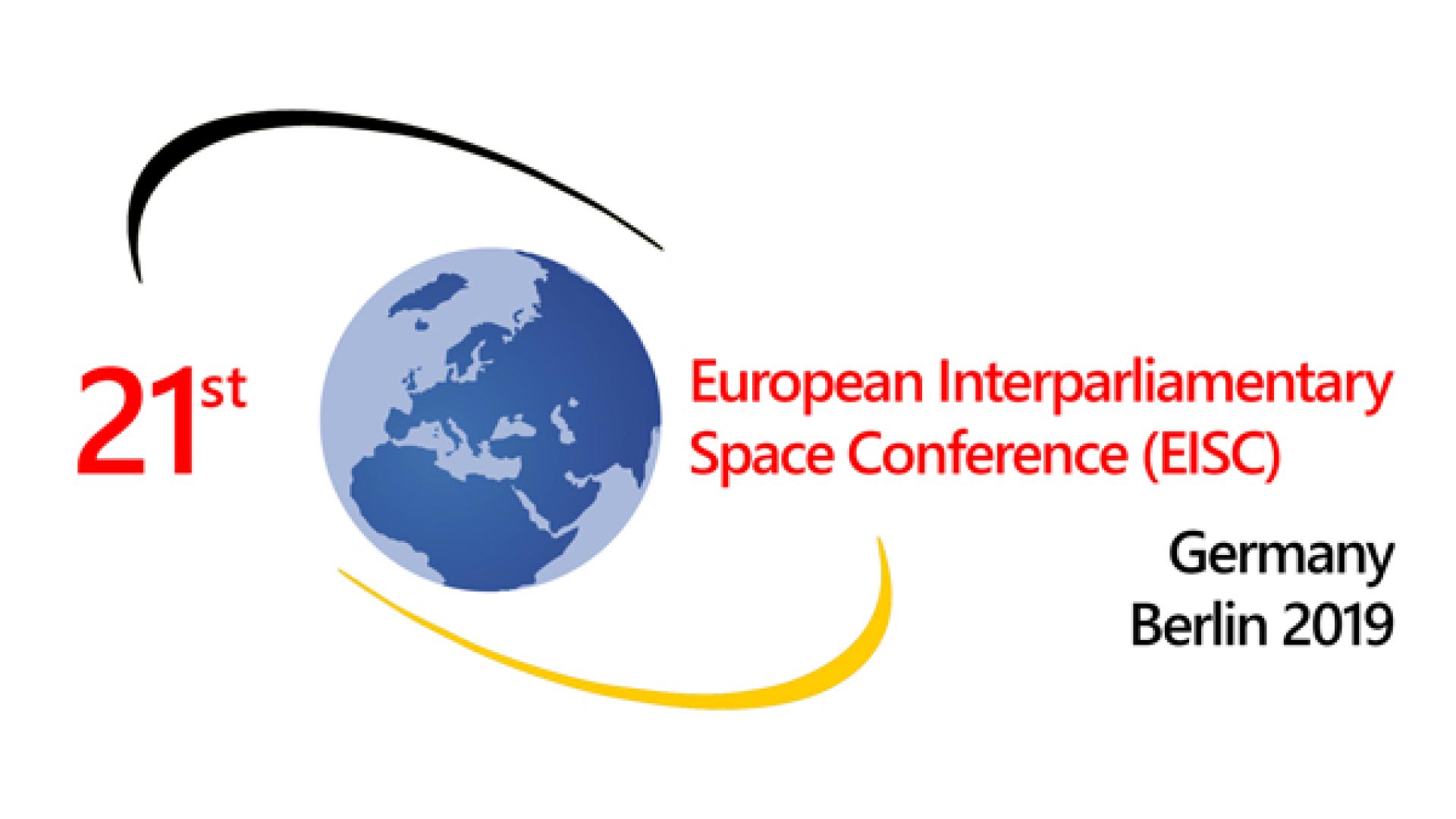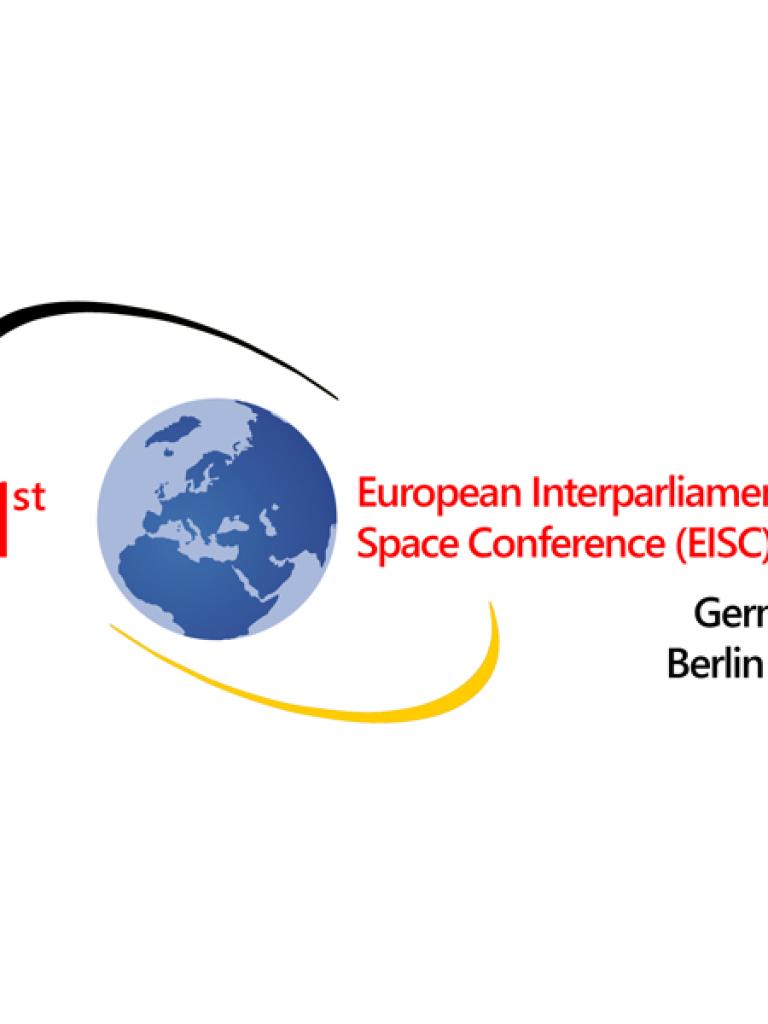
EUMETSAT Director-General to discuss future satellite missions at EISC


Taking place in Berlin this year under German chairmanship, the 21st European Interparliamentary Space Conference (EISC) is an opportunity to present EUMETSAT’s views on the continuity of our programmes, our cooperation with Copernicus plus EUMETSAT’s plans for benefitting from opportunities raised by new space technologies, i.e. through small satellite missions.
13 October 2022
09 September 2019
Alain Ratier, EUMETSAT Director-General, will be contributing to the session “Enhancing European Leadership – The Next Generations of Galileo and Copernicus and the Role of Small Satellites in Space Applications”. During this session, he will explain how EUMETSAT intends to support future Copernicus missions with our fleet of next-generation satellites carrying a suite of highly innovative instruments, as well as through the operations of future Sentinel missions starting with CO₂ monitoring.
“On the Road to Space 19+”
This year’s conference, taking place on 9 - 10 September is being held in preparation for the European Space Agency’s (ESA) ministerial meeting later this year and will cover important matters such as space weather, the six potential new missions of Copernicus, future Earth observation and more under this year’s theme. Three types of sessions are expected on the topics of “Exploration”, “Safety and Security” and “Applications”.

Ratier will also address EUMETSAT’s support to the space component of the World Meteorological Organization’s (WMO) Vision 2040 for the Integrated Global Observing System (WIGOS); in particular, with regard to greenhouse gas observations and to the role that small satellites could play to complement observations from core systems such as EPS-SG (EUMETSAT Polar System – Second Generation) in the future.
As agreed by the EUMETSAT Council, to complement the observations for its future Meteosat Third Generation (MTG) and EPS-SG programmes, possible priorities for EUMETSAT in the future might be a contribution to an operational Wind Limar mission following AEOLUS. Microwave sounding and radio occultation missions will also be examined.
EISC 2019 Chairman, MP Klaus-Peter Willsch will host the event, with opening remarks from Dr. Wolfgang Schäuble (President of the Bundestag), keynote speeches from Thomas Jarzombek (Federal Government Coordinator of German Aerospace Policy), Prof. Dr. Johann-Dietrich Wörner (Director General European Space Agency) and talks from many more key industry experts.
The EISC was established in 1999 as a permanent forum for inter-parliamentary cooperation in space between those European national parliaments interested in space policy. Its members can be found here . The conference allows for an exchange of information on space activities, promoting the understanding of national policies by providing a forum where major issues at stake in the European space sector can be discussed.
For more information, including a programme of the event visit the EISC website here .
ABOUT EUMETSAT
The European Organisation for the Exploitation of Meteorological Satellites is an intergovernmental organisation based in Darmstadt, Germany, currently with 30 Member States (Austria, Belgium, Bulgaria, Croatia, Czech Republic, Denmark, Estonia, Finland, France, Germany, Greece, Hungary, Iceland, Ireland, Italy, Latvia, Lithuania, Luxembourg, the Netherlands, Norway, Poland, Portugal, Romania, Slovakia, Slovenia, Spain, Sweden, Switzerland, Türkiye and the United Kingdom).
EUMETSAT operates the geostationary satellites Meteosat -9, -10 and -11 over Europe and Africa, and Meteosat-8 over the Indian Ocean.
EUMETSAT operates a constellation of three Metop polar-orbiting satellites as part of the Initial Joint Polar System (IJPS) shared with the US National Oceanic and Atmospheric Administration (NOAA).
EUMETSAT is also a partner in the cooperative sea level monitoring Jason missions (Jason-2 , Jason-3 and Jason-CS/Sentinel-6 ) involving Europe and the United States.
The data and products from EUMETSAT’s satellites are vital to weather forecasting and make a significant contribution to the monitoring of environment and climate change.
The European Union has entrusted EUMETSAT with exploiting the four Sentinel missions of Copernicus dedicated to the monitoring of atmosphere, ocean and climate on its behalf. EUMETSAT carries out these tasks in cooperation with ESA and already exploits the Sentinel-3 marine mission.
EUMETSAT has established cooperation with operators of Earth Observation satellites from Europe and from China, India, Japan, Russia, South Korea and the United States.
